Who is the Education Minister of India 2025? Get the updated list of Education Ministers from 1947 to 2025, first education minister, current shiksha mantri, roles, and reforms.
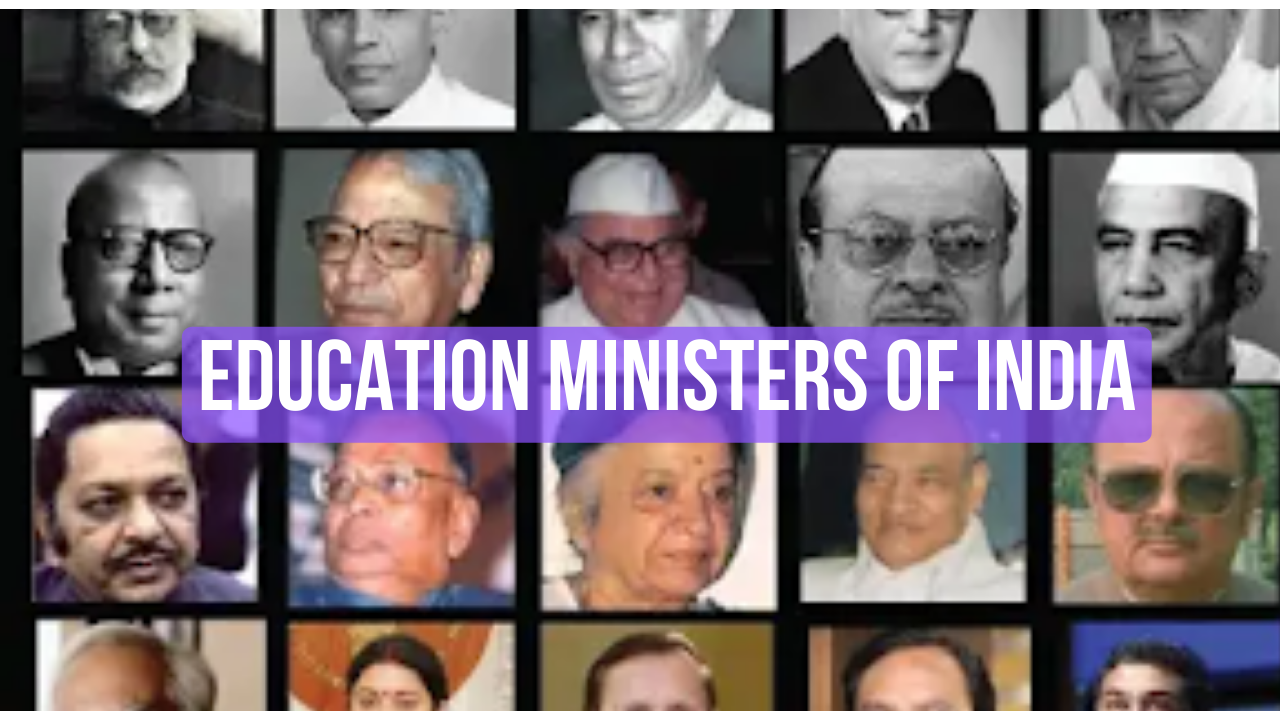
Education Minister of India 2025: Education plays a foundational role in shaping a nation’s future, and the Education Minister of India serves as the central figure guiding this mission. Since independence, India’s education system has seen significant evolution—from a mere 12% literacy rate in 1947 to nearly 75% today. This transformation is largely attributed to the dedication of the various leaders who have served as the Education Minister of India. With more than 30 individuals having held the office, each has contributed to making India a global educational hub.
As of 2025, Shri Dharmendra Pradhan is the Education Minister of India 2025. He took office on 7th July 2021 and continues to lead key reforms in the education sector, most notably the implementation of the National Education Policy (NEP) 2020. His leadership focuses on vocational education, digital learning, and bridging gaps in access to quality education.
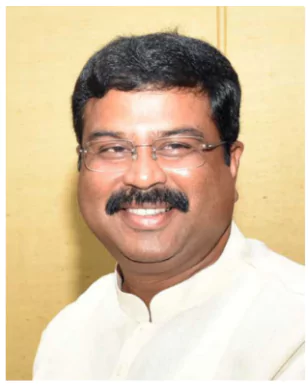
Alongside Dharmendra Pradhan, two Ministers of State assist in executing educational policies:
1. Shri Jayant Chaudhary (Room No. 104A – C Wing)
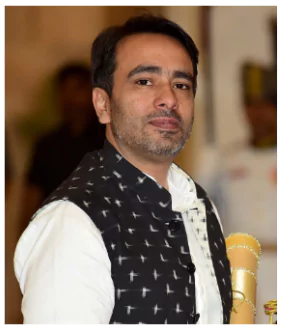
2. Shri Sukanta Majumdar (Room No. 126-C)
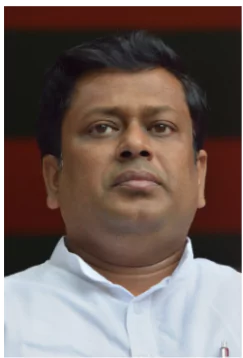
भारत के वर्तमान शिक्षा मंत्री श्री धर्मेंद्र प्रधान हैं। वह 2021 से भारत की शिक्षा नीति का नेतृत्व कर रहे हैं और राष्ट्रीय शिक्षा नीति 2020 को लागू करने में महत्वपूर्ण भूमिका निभा रहे हैं।
The Ministry of Education was formally established in 1947, shortly after independence. It was renamed as the Ministry of Human Resource Development (MHRD) in 1985 and later restored to the Ministry of Education under the NEP 2020.
The first education minister of India after independence, Maulana Abul Kalam Azad, is remembered on November 11th as National Education Day. His vision and commitment to establishing a solid educational foundation for India are still important today.
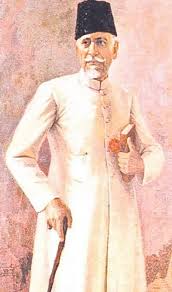
Azad, who served as Education Minister from 1947 to 1958, was important in developing policies that led to more accessible and high-quality education. His efforts created important organizations and structures that still direct India’s growth in education, placing a strong emphasis on intellectual development and cultural diversity.
He laid the foundation for institutions such as the Indian Institutes of Technology (IITs) and the University Grants Commission (UGC), and emphasised secular and scientific learning. His tenure (1947–1958) remains one of the most transformative in India’s education history.
Anandiben Patel is an important person in Indian politics, notably as the first woman to serve as both the Education Minister of India and the Chief Minister of Gujarat. An active member of the Bharatiya Janata Party (BJP) since 1987, she held the Cabinet Minister for Education portfolio from 2002 to 2007, a period during which she played a significant role in shaping educational policy.
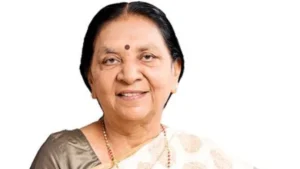
The Education Minister of India list spans from Maulana Abul Kalam Azad to Dharmendra Pradhan, showcasing over 30 education ministers who have helped the nation move from a mere 12% literacy rate in 1947 to 75% in recent years. Their legacy is a testament to the evolving educational priorities of the country. Here’s a concise Education Ministers of India List, featuring the key leaders who have served the nation:
| List of Education Ministers of India (1947 to 2025) | ||
| S.No | Name | Tenure |
| 1 | Maulana Abul Kalam Azad | 1947–1958 |
| 2 | Dr. K. L. Shrimali | 1958–1963 |
| 3 | Humayun Kabir | 1963 |
| 4 | M. C. Chagla | 1963–1966 |
| 5 | Fakhruddin Ali Ahmed | 1966–1967 |
| 6 | Triguna Sen | 1967–1969 |
| 7 | V. K. R. V. Rao | 1969–1971 |
| 8 | S. S. Ray | 1971–1972 |
| 9 | Nurul Hasan | 1972–1977 |
| 10 | P. C. Chunder | 1977–1979 |
| … | … | … |
| 30 | Smriti Irani | 2014–2016 |
| 31 | Prakash Javadekar | 2016–2019 |
| 32 | Ramesh Pokhriyal Nishank | 2019–2021 |
| 33 | Dharmendra Pradhan | 2021–Present |
The Ministry of Education was originally established in 1947. In 1985, it was renamed the Ministry of Human Resource Development (MHRD) under the Rajiv Gandhi government. However, in 2020, the Ministry was renamed back to the Ministry of Education, aligning with the goals of the National Education Policy 2020. Today, it operates through two main departments:
The Education Minister of India 2025, along with the ministry, upholds the following goals:
Under the leadership of the Education Minister of India, the National Education Policy 2020 is a revolutionary policy aimed at:
Shri Dharmendra Pradhan has been actively promoting the Skill India Mission, integrating vocational courses in the school curriculum, and strengthening digital learning platforms like DIKSHA and SWAYAM.
India now has one of the largest higher education systems globally, next only to the US and China. Initiatives like Study in India, Academic Bank of Credits, and NIRF Rankings aim to globalise Indian education and improve institutional accountability.
Under the leadership of the Education Minister of India, these policies are not just transforming classrooms but also making India a global educational hub.
The role of the Education Minister of India is essential in shaping policies that influence millions of students and educators across the country. From Maulana Abul Kalam Azad to Dharmendra Pradhan, each leader on the List of Education Ministers of India 1947 to 2025 has left an unforgettable mark on the nation’s educational fabric.
As we progress into a new era with digital innovation and inclusive education, the leadership of the Education Minister of India 2025, Shri Dharmendra Pradhan, will remain instrumental in empowering India’s youth and driving the country toward a knowledge-based economy.
Ready to boost your UPSC 2026 preparation? Join PW’s UPSC online courses today!
Check Out UPSC CSE Books
Visit PW Store
Dharmendra Pradhan is the current Education Minister of India since July 2021.
भारत के वर्तमान शिक्षा मंत्री श्री धर्मेंद्र प्रधान हैं। वे वर्ष 2021 से इस पद पर कार्यरत हैं। उनका प्रमुख ध्यान राष्ट्रीय शिक्षा नीति 2020 (NEP 2020) के प्रभावी कार्यान्वयन और भारत को एक ज्ञान-आधारित अर्थव्यवस्था के रूप में विकसित करने पर है। शिक्षा मंत्रालय में उनके साथ राज्य मंत्री के रूप में श्री जयंत चौधरी और डॉ. सुकांत मजूमदार भी कार्यरत हैं।
Maulana Abul Kalam Azad was first Education Minister of independent India, a prominent freedom fighter and scholar who served in Jawaharlal Nehru's cabinet from 1947 until his passing in 1958.
Smt Anandiben Patel is the first woman education minister of India. She has served as the first female Chief Minister of Gujarat.
<div class="new-fform">
</div>
